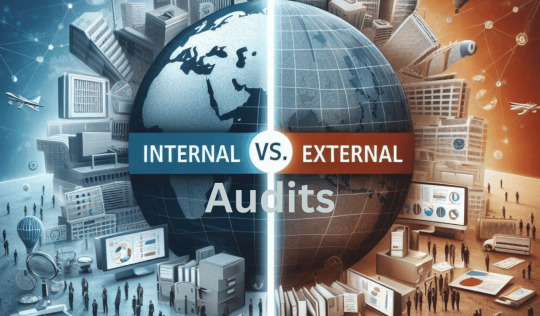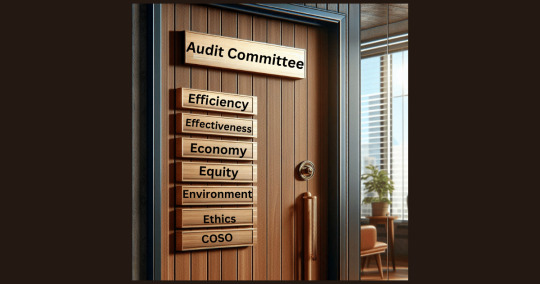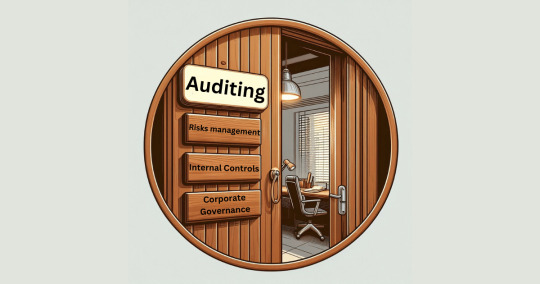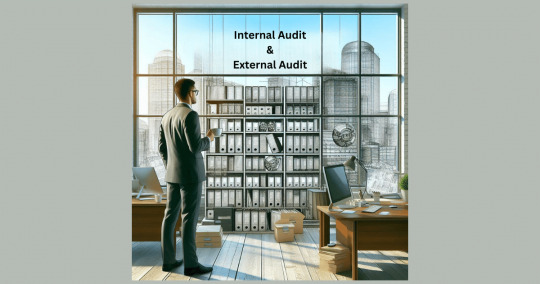#External Audit
Explore tagged Tumblr posts
Text

External Audit: Building Trust & Transparency! ✅ An external audit ensures financial transparency by verifying the accuracy of financial statements and ensuring compliance with regulations. This process enhances stakeholder trust, minimizes risks, and strengthens business credibility. Stay compliant, stay trusted! For expert guidance, connect with us today! 📞 Contact us at: +968 9629 2633 📧Email us at: [email protected] 🌐Visit our website: https://om.premier-brains.com/
0 notes
Video
youtube
Auditing | Difference between Internal Audit and External Audit
#youtube#sageuniversitybhopal#auditing#internal audit#external audit#school of commerce#top university in bhopal#best university in bhopal
0 notes
Text
Nigeria's Federal Government Initiates External Audit of NNPC's N2.7tn Subsidy Claim
The Federal Government has taken a significant step towards verifying the Nigerian National Petroleum Company Limited’s (NNPC) N2.7tn fuel subsidy claim by initiating the selection process for an external auditor. This move aims to determine the authenticity of the claim and ensure transparency in the subsidy payment process. The external auditor will assist the Office of the Auditor-General of…
0 notes
Text
Unlocking Clarity: Internal vs. External Audits Demystified | 10 Years of Expert Insight!
Unlocking Clarity: Internal vs. External Audits Demystified | 10 Years of Expert Insight!
Discover the nuances between internal and external audits. Gain valuable insights for a robust audit strategy. Your go-to guide! | Deciphering audits for success.

Internal Audit and External Audit: Understanding the Key Distinctions
In the realm of corporate governance and financial management, audits play a pivotal role in ensuring transparency, accuracy, and compliance with regulations. Two primary forms of audits, internal and external, serve distinct purposes within organizations. Understanding the differences between internal audit and external audit is essential for stakeholders, management, and regulatory bodies alike. In this comprehensive guide, we delve into the intricacies of both types of audits, exploring their scope, methodologies, and contributions to organizational governance.

1. Introduction to Internal and External Audit
1.1. Defining Internal Audit
Internal audit constitutes an independent, objective assurance and consulting activity designed to add value and improve an organization’s operations. It helps an organization accomplish its objectives by bringing a systematic, disciplined approach to evaluate and improve the effectiveness of risk management, control, and governance processes.
1.2. Defining External Audit
External audit, on the other hand, is an independent examination of financial information of any entity, whether profit-oriented or not, irrespective of its size or legal form, when such an examination is conducted with a view to expressing an opinion thereon. It is conducted by an external auditor, who is appointed by the shareholders or governing body of an organization.

2. Purpose and Scope
2.1. Internal Audit Purpose
Internal audits are conducted to evaluate and improve the effectiveness of risk management, control, and governance processes within an organization. They provide insights into operational efficiency, compliance with policies and procedures, and the overall management of risk across various business functions.
Summary
Focus on Organizational Processes.
Delving into the intricacies of day-to-day operations.
Identifying inefficiencies and proposing enhancements.
Evaluating Internal Controls.
Scrutinizing the effectiveness of internal control mechanisms.
Mitigating the risk of fraud and operational lapses.
Risk Management.
Proactively managing risks inherent in business processes.
Developing strategies for risk mitigation and resilience.
2.2. External Audit Purpose
External audits primarily focus on providing assurance to stakeholders regarding the accuracy and reliability of financial statements. They verify the fairness of financial presentations and ensure compliance with relevant accounting standards and regulatory requirements.
Summary
Financial Statement Examination.
In-depth analysis of financial records and transactions.
Ensuring accuracy and reliability of financial reporting.
Compliance Verification.
Verifying adherence to legal and regulatory requirements.
Providing stakeholders with assurance on compliance.
Stakeholder Assurance.
Assuring external parties of the organization’s financial health.
Fostering trust among shareholders and investors.

3. Authority and Independence
3.1. Internal Audit Authority
Internal audit functions typically report to the highest levels of management within an organization, such as the board of directors or audit committee. They operate independently from operational areas to maintain objectivity and impartiality in their assessments.
Summary
Direct Reporting to Management.
Reporting directly to the organization’s management.
Facilitating immediate corrective actions.
Advisory Role.
Serving as an advisory body to improve internal processes.
Providing insights for strategic decision-making.
Employed by the Organization.
Internal auditors as part of the organizational structure.
Potential for internal biases and conflicts.
Potential Bias Concerns.
Navigating challenges associated with internal allegiances.
Striving for objectivity within the organizational context.
3.2. External Audit Authority
External auditors are appointed by shareholders or governing bodies and report directly to them. This independence from the organization ensures an unbiased evaluation of financial statements, enhancing the credibility of the audit process.
Summary
Independent Reporting to Shareholders.
Maintaining independence from internal biases.
Reporting findings directly to shareholders.
Regulatory Compliance Focus.
Emphasizing adherence to legal and regulatory standards.
Offering an objective assessment of compliance.
Independent from the Organization.
External auditors operate autonomously.
Minimizing biases and conflicts of interest.
Objective Evaluation.
Delivering an objective assessment of financial matters.
Prioritizing external stakeholders’ interests.
"Americans like to make money; Canadians like to audit it. I know no other country where accountants have a higher social and moral status." Northrop Frye
4. Focus Areas
4.1. Internal Audit Focus
Internal audits concentrate on evaluating operational efficiency, ensuring compliance with internal policies and procedures, and identifying areas of potential risk. They delve into the intricacies of day-to-day processes to enhance overall organizational performance.
Summary
Process Improvement.
Prioritizing the enhancement of internal processes.
Contributing to organizational efficiency and effectiveness.
Operational Efficiency.
Identifying opportunities for streamlining operations.
Addressing challenges that impact day-to-day efficiency.
4.2. External Audit Focus
External audits primarily focus on the accuracy of financial statements, compliance with accounting standards, and the detection of fraud or misstatements. The emphasis is on providing stakeholders with confidence in the financial information presented by the organization.
Summary
Financial Accuracy.
Ensuring precision in financial reporting.
Verifying the accuracy of financial statements.
Compliance Assurance.
Providing assurance on adherence to legal and regulatory standards.
Delivering confidence to external stakeholders.

5. Reporting Structure
5.1. Internal Audit Reporting
Internal audit reports are directed to the management of the organization. These reports include recommendations for improvement in processes, controls, and risk management based on the findings of the audit.
Summary
Direct Reporting to Management.
Reporting directly to the organization’s management.
Facilitating immediate corrective actions.
Advisory Role.
Serving as an advisory body to improve internal processes.
Providing insights for strategic decision-making.
5.2. External Audit Reporting
External auditors provide reports directly to the shareholders or the board of directors. These reports contain opinions on the fairness of the financial statements and the adherence to accounting principles.
Summary
Independent Reporting to Shareholders.
Maintaining independence from internal biases.
Reporting findings directly to shareholders.
Regulatory Compliance Focus.
Emphasizing adherence to legal and regulatory standards.
Offering an objective assessment of compliance.

6. Frequency and Timing
6.1. Internal Audit Frequency
Internal audits can be conducted on an ongoing or periodic basis, depending on the organization’s needs. They are not limited to specific timeframes and can be scheduled throughout the year.
Summary
Continuous or Periodic.
A continuous process with ongoing assessments.
Periodic deep dives into specific operational areas.
Regular Assessments.
Ensuring ongoing alignment with organizational goals.
Real-time monitoring for effective risk management.
6.2. External Audit Frequency
External audits are typically an annual requirement, timed after the completion of financial periods. This ensures a comprehensive examination of the financial statements at the end of each fiscal year.
Summary
Annual or Periodic.
Typically conducted annually or periodically.
Focused on the financial year-end for comprehensive reviews.
Focused on Financial Year-End.
Ensuring the accuracy of year-end financial statements.
Aligning with regulatory reporting timelines.

7. Key Personnel and Teams
7.1. Internal Audit Team
Internal audit teams are usually employed by the organization itself. They report to the board or audit committee and are intimately familiar with the organization’s internal processes and controls.
7.2. External Audit Team
External audit teams, on the other hand, are independent audit firms hired by shareholders or the board. This independence ensures an unbiased evaluation of financial statements and internal controls.

8. Risk Management and Compliance
8.1. Internal Audit Role in Risk Management
Internal audits play a crucial role in identifying and mitigating risks associated with operational processes. They ensure compliance with internal policies and procedures, reducing the likelihood of financial and operational setbacks.
Summary
Operational Risks.
Identifying and mitigating risks associated with operations.
Enhancing operational resilience through proactive measures.
Internal Fraud.
Addressing the risk of internal fraud and misconduct.
Safeguarding organizational assets and resources.
8.2. External Audit Role in Risk Management
External audits focus on assessing financial risks and verifying compliance with accounting standards. While they may not delve as deeply into operational risks, they contribute significantly to overall risk management by ensuring financial accuracy.
Summary
Financial Misstatements.
Vigilantly assessing the risk of financial inaccuracies.
Providing assurance on the accuracy of financial records.
Non-Compliance Risks.
Identifying risks associated with non-compliance.
Assuring stakeholders of the organization’s commitment to compliance.

9. Documentation and Record Keeping
9.1. Internal Audit Documentation
Internal audit documentation is detailed and comprehensive, encompassing reports and findings, process flows, and control assessments. This documentation serves as a foundation for improving internal processes.
9.2. External Audit Documentation
External audit documentation primarily includes audited financial statements, working papers, and test documentation. These documents provide evidence of the audit process and support the auditor’s opinions on financial statements.

10. Confidentiality and Disclosure
10.1. Internal Audit Confidentiality
Internal audit findings are typically kept confidential within the organization. The focus is on improving internal processes, and disclosure is limited to the management or specific departments involved.
Summary
Internal Information Handling.
Safeguarding internal information with stringent confidentiality measures.
Balancing transparency with the need for confidentiality.
Limited External Disclosures.
Minimizing external disclosures of internal processes.
Prioritizing the security of sensitive organizational information.
10.2. External Audit Disclosure
External audits involve public disclosure of financial statements. The information provided in external audit reports is accessible to external stakeholders, ensuring transparency and accountability.
Summary
Public Disclosures.
Adhering to regulatory requirements for public disclosures.
Balancing transparency with legal obligations.
Limited Confidentiality.
Navigating constraints related to public disclosures.
Emphasizing the importance of transparency within legal bounds.

11. Regulatory Oversight and Compliance
11.1. Internal Audit Regulation
Internal audits may be conducted to ensure compliance with internal controls and policies, often voluntarily or as mandated by industry standards. Regulatory oversight is generally limited to specific sectors or industries.
Summary
Internal Policies.
Guided by internal policies and organizational guidelines.
Adhering to industry-specific standards.
Industry Guidelines.
Aligning with industry benchmarks and best practices.
Navigating sector-specific regulatory landscapes.
11.2. External Audit Regulation
External audits are mandated by government regulations, and regulatory bodies often oversee the auditing profession. Compliance with accounting standards is a critical aspect of external audit regulations.
Summary
Statutory Requirements.
Mandated by statutory regulations governing external audits.
Ensuring compliance with universally accepted accounting principles.
Compliance with Accounting Standards.
Adhering to international accounting standards.
Providing a standardized framework for financial reporting.

12. Cost and Resource Allocation
12.1. Internal Audit Costs
Internal audit costs are typically incorporated into the operational budgets of organizations. The allocation of resources depends on the size and complexity of the organization.
Summary
In-House Expenses.
Involving internal personnel and resources.
Managing costs associated with internal audits.
Resource Allocation.
Allocating internal resources for audit activities.
Balancing costs with the benefits of continuous internal oversight.
12.2. External Audit Costs
External audit costs involve contractual fees paid to audit firms. The fees are based on the complexity and scope of the audit, reflecting the level of effort required by the external audit team.
Summary
External Firm Fees.
Engaging external audit firms for independent reviews.
Incurring fees for external expertise.
Cost of Compliance.
Balancing the costs associated with ensuring compliance.
Weighing the benefits of external assurance against financial outlays.

13. Value Addition and Benefit
13.1. Internal Audit Value Addition
Internal audits add value by identifying process improvements, strengthening internal controls, and providing insights into operational efficiency. Their focus on internal processes enhances overall organizational effectiveness.
13.2. External Audit Value Addition
External audits enhance financial transparency by ensuring the accuracy of financial statements. Their opinions provide assurance to stakeholders and investors, contributing to the overall credibility of the organization.

14. Challenges and Limitations
14.1. Internal Audit Challenges
Internal audits may face challenges such as limited resources and budgets. Ensuring independence from management while working closely with operational areas can also pose challenges.
14.2. External Audit Challenges
External audits encounter challenges related to the complexity of financial transactions and the evolving landscape of regulatory requirements. Staying abreast of changes is crucial for maintaining audit effectiveness.

15. Collaboration and Communication
15.1. Internal Audit Collaboration
Internal audits involve collaboration with various departments and levels of management. They play a key role in facilitating process improvement initiatives by working closely with operational areas.
Summary
Immediate Corrections.
Implementing swift corrective actions based on findings.
Addressing identified weaknesses promptly.
Continuous Improvement Plans.
Developing long-term strategies for ongoing improvement.
Fostering a culture of continuous enhancement.
15.2. External Audit Communication
External audits require effective communication with management and audit committees. Providing feedback and recommendations based on audit findings is essential for ensuring continuous improvement.
Summary
Compliance Recommendations.
Offering recommendations for addressing compliance gaps.
Providing a roadmap for achieving and maintaining compliance.
Legal Consequences.
Highlighting potential legal consequences of non-compliance.
Emphasizing the importance of proactive adherence to regulations.

16. Continuous Improvement and Evolution
16.1. Internal Audit Evolution
Internal audits evolve by embracing technology and automation. The incorporation of data analytics and artificial intelligence enhances the efficiency and effectiveness of internal audit processes.
Summary
Iterative Assessments.
Conducting iterative assessments for ongoing improvement.
Adapting audit methodologies based on lessons learned.
Adaptive Strategies.
Developing adaptive strategies for dynamic organizational environments.
Embracing change as a catalyst for improvement.
16.2. External Audit Evolution
External audits adapt to changes in accounting standards and regulations. Leveraging technology for audit efficiency, they stay at the forefront of industry best practices to ensure thorough and accurate evaluations.
Summary
Yearly Reflections.
Reflecting on annual audit processes for improvement.
Incorporating lessons learned into future audit engagements.
Industry Benchmarking.
Benchmarking against industry standards and best practices.
Contributing to the evolution of external audit practices.

17. Industry Best Practices
17.1 Internal Audit Best Practices
Internal audit best practices include adopting COSO frameworks for internal controls and implementing risk-based auditing approaches. These practices ensure a systematic and effective audit process.
17.2. External Audit Best Practices
External audit best practices involve adhering to Generally Accepted Auditing Standards (GAAS) and Generally Accepted Accounting Principles (GAAP). Upholding professional ethics and independence is paramount.

18. Training and Professional Development
18.1. Internal Audit Training
Internal audit professionals undergo continuous professional education. Certification programs such as Certified Internal Auditor (CIA) and Certified Information Systems Auditor (CISA) contribute to their expertise.
18.2. External Audit Training
External audit professionals obtain certifications such as Certified Public Accountant (CPA). Ongoing professional development requirements ensure they stay current with industry standards and regulations.

19. Emerging Trends and Technologies
19.1. Internal Audit Trends
Emerging trends in internal audit include the use of data analytics and artificial intelligence. Internal audits are increasingly focusing on cybersecurity audits to address evolving threats.
19.2 External Audit Trends
External audit trends encompass the integration of blockchain technology and the use of data analytics for fraud detection. These advancements enhance the accuracy and efficiency of external audit processes.

20. Conclusion
In conclusion, the differences between internal audit and external audit are multifaceted, each serving a unique purpose within the realm of organizational governance. While internal audits focus on operational efficiency, risk management, and compliance, external audits provide assurance regarding the accuracy of financial statements and adherence to accounting standards. It is crucial to recognize the complementary nature of these audits, with each contributing significantly to the overall health and credibility of an organization.

#accounting#banking#finance#investment#cfo#financial accounting#personal finance#financial literacy#financial modeling#financial planning#Internal Audit#External Audit#auditing#risk management#Internal Controls
0 notes
Text
0 notes
Text
Everything You Need to know about Internal Audits in UAE

Unlike external audits, which assess a company's financial health and competitive position, internal audits are more flexible and staff-friendly. The primary aim of an internal audit is to educate employees on how to improve efficiency and reach professional goals. Internal audits also focus on identifying security flaws and quickly mitigating potential risks.
Objectives of Internal Audit
Internal auditing aims to assess and improve the effectiveness of an organisation's governance, risk management, and control processes. Its ultimate goal is to support management in carrying out their responsibilities through objective analysis, recommendations, and observations on various aspects of business operations. The purpose of internal auditing is to assist in improving the overall performance of an organisation.
Scope of Internal Audit
Review each control and analyse its costs and benefits.
Evaluate the existing system of controls to ensure that it aligns with the organisation's structure.
Institute a productive internal control environment
Checking the accuracy and truthfulness of financial and operational information, as well as the methods used to record and report that information.
Reviewing how assets are being protected and ascertaining that they exist.
Determine the flaws within the functions of the business
Role of an internal auditor
Internal auditors in UAE play a crucial role in organisations by engaging with senior management and stakeholders to provide insightful recommendations for enhancing organisational performance in their meticulously prepared audit reports. While internal auditors are knowledgeable about the company's operations and history, it is often recommended to appoint an external auditor to eliminate any potential bias. These impartial auditors are like astute investigators, controlling and assessing risks more effectively than their internal counterparts, ultimately ensuring that the audit process is objective and unbiased. The duration of an internal audit is dependent on the size and scope of the organisation. Regardless of its length, the results are invaluable as they can uncover inefficiencies and areas of improvement within the organisation.
To know more, check out here
0 notes
Text
#best audit firms in dubai#Audit advisory services in UAE#internal audit firms in dubai#External audit
0 notes
Text
It's one of those days we're you just gotta
AAAAAAAAAAAAAAAHHHHHHHHHHHHHHHHHHHHHHHHHHHHHHHHHH
#internal auditor: So i like found these issues#I honestly dont know how theyre still here you updated the document just two months ago#YEAH. AND IT WAS A LITERAL PAGE OF UPDATES#AFTER ID JUST DONE A LITERAL PAGE OF UPDATES#BECAUSE SHIT IS FUCKED MY BOSS DIDNT CARE ABOUT UPDATING THIS STUFF AND NONE OF THE FIRED ENGINEERS BEFORE ME DID EITHER#BUT NO I DEFINITELY HAVE TIME TO DO THIS WHILE TRYING TO GET A NEW LINE RUNNING#ABD PREPARING FOR AN EXTERNAL AUDIT#AND TRYING TO KEEP THE 30 YEAR OLD NEVER MAINTAINED LINE FROM KILLING ITSELF#AND IT WANTS TO DIE SO FUCKING BAD#deep breath#she is not the issue she is doing her job. i am just overwhelmed#and her off handed comment about it being updated recently does not necessitate fury#me: boss we need another engineer to keep this place from exploding#her: oh yeah we should start leveraging our new operator with a chemistry background#me: ... but hes already doing a full time job... and youre not paying for hin to do engineering work...#and again. HE IS ALREADY DOING A FULL TIME JOB#its been a week yall and its not stopping soon#i blame the massive project i have ahead of me that ive barely started#if i can get that done maybe we can finally breath
2 notes
·
View notes
Text

when the week ahead feels so intimidating you start packing for the weekend with your boyfriend on monday night :/
#everyone is off sick / gcses are still going / i have to teach classes i don't know / we have an external audit coming up#i want to leeeeeeave
5 notes
·
View notes
Text
TENDER FOR PROVISION OF EXTERNAL AUDIT SERVICES
AZIMA SACCO LTD TENDER JANUARY 2025 REQUEST FOR PROPOSALS Azima Sacco Ltd is a Savings and Credit Co-operative Society Registered under the Co-operative Societies Act Cap 490 and licensed under SASRA as a deposit taking Sacco. The Sacco seeks to engage professional and experienced firms to offer External Audit Services. Kindly send your proposals via email at: [email protected] . Please…
0 notes
Text
Why External Audits Improve Investor Confidence in UAE Companies
External audits play a pivotal role in maintaining transparency, ensuring compliance, and enhancing the credibility of businesses. In the UAE, where the business environment is highly competitive and globally integrated, external auditing services have become indispensable for fostering investor confidence. This article delves into the significance of external audits and how they elevate trust among investors in UAE companies.

The Role of External Audits in Business Transparency
What Are External Audits?
External audits involve the evaluation of a company’s financial statements by an independent auditing firm. These audits ensure that financial records are free from material misstatements and comply with applicable accounting standards.
External auditing services in the UAE adhere to globally recognized frameworks, providing a clear and unbiased view of a company's financial health. These assessments help businesses build credibility and establish trust with stakeholders.
Ensuring Accurate Financial Reporting
Accurate financial reporting is critical for any business looking to attract and retain investors. External audits validate the authenticity of financial data, ensuring that stakeholders can rely on the information presented. This validation is especially crucial in the UAE, where diverse international investors seek transparency in financial dealings.
Boosting Investor Confidence Through Audit Services in UAE
Trust in Numbers
Investors depend heavily on accurate financial data when deciding to invest in a company. External audit services in UAE ensure that financial statements are prepared following International Financial Reporting Standards (IFRS), eliminating doubts and enhancing trust.
By providing an independent assessment of financial records, external audits assure investors that the company’s financial standing is strong and its operations are legitimate.
Reducing Financial Risks
A significant advantage of external audits is the identification of potential financial risks. Accounting and auditing firms in UAE provide a detailed analysis of areas prone to fraud or mismanagement, giving investors confidence that risks are being proactively managed.
Upholding Compliance with Regulations
The UAE has stringent regulatory requirements for businesses operating within its jurisdiction. External audits ensure that companies comply with these legal obligations, reducing the likelihood of penalties or reputational damage. Investors feel more secure knowing that the company is operating within the law.
Key Benefits of External Audit Services in UAE for Investors
1. Enhanced Financial Transparency
Transparency in financial dealings is a cornerstone of investor confidence. External audits ensure clear and precise reporting, allowing investors to make informed decisions.
2. Verification of Internal Controls
External auditing services evaluate a company’s internal control mechanisms, ensuring that they are robust enough to prevent financial fraud. This verification is vital for investors who want assurance of the company’s long-term sustainability.
3. Fair Valuation of Assets and Liabilities
One of the essential tasks of external audits is verifying the valuation of assets and liabilities. Accurate asset valuation ensures that investors have a clear understanding of the company’s financial position.
4. Increased Market Credibility
Companies that regularly engage reputable accounting and auditing firms in UAE gain higher credibility in the market. Investors are more likely to trust businesses with audited financial statements, as these reflect the company’s commitment to transparency and accountability.
Choosing the Right Accounting and Auditing Firms in UAE
Key Qualities of a Reliable External Auditor
Independence and Objectivity A good external auditor maintains impartiality, ensuring a fair and unbiased assessment.
Experience in the UAE Market Accounting and auditing firms with extensive experience in the UAE understand the region’s regulatory landscape, making them more effective in conducting audits.
Global Standards Compliance Firms that follow international auditing standards, such as IFRS, provide more reliable and universally accepted audit results.
Why Companies Should Invest in Professional External Auditing Services
Investing in external auditing services in UAE not only fulfills a regulatory requirement but also acts as a strategic decision to attract global investors. Reputable audit firms provide a comprehensive evaluation that enhances trust, mitigates risks, and ensures compliance.
The Role of UAE Regulations in Investor Confidence
Compliance with Federal Laws
The UAE has implemented stringent federal laws to enhance financial transparency and accountability. External audit services help businesses comply with laws such as the UAE Commercial Companies Law and anti-money laundering (AML) regulations.
Attracting Foreign Investments
The UAE is a global business hub, attracting investors from around the world. With external auditing services, companies can demonstrate adherence to international standards, which is a key factor for foreign investors evaluating opportunities in the region.
Case Studies: How External Audits Strengthened Investor Trust
Example 1: A Multinational Corporation
A multinational corporation operating in the UAE faced skepticism from investors due to its rapid expansion. By partnering with a leading accounting and auditing firm in UAE, the company underwent an external audit, which validated its financial statements and strengthened investor trust.
Example 2: A Local SME
A small and medium enterprise (SME) sought to raise funds through private investors. External auditing services provided by a reputable UAE firm ensured transparency, helping the SME secure the necessary investment for growth.
Challenges and How to Overcome Them
Misinterpretation of Financial Data
Some businesses fear that external audits might expose weaknesses. However, this process is an opportunity to identify and rectify issues, ultimately leading to improved operations.
Selecting the Right Auditing Partner
Choosing the right auditing firm is crucial. Companies should evaluate the expertise, reputation, and compliance standards of accounting and auditing firms in UAE before hiring them.
Conclusion
External audits are a cornerstone of building investor confidence in UAE companies. By ensuring transparency, accuracy, and compliance, these audits provide the assurance investors need to commit their resources to a business. Collaborating with reputable accounting and auditing firms in UAE enables companies to meet international standards, mitigate risks, and maintain a competitive edge in the market.
As the UAE continues to thrive as a global business hub, external auditing services remain essential for companies aiming to attract and retain investors.
#Audit Services In UAE#Accounting And Auditing Firms In UAE#External Auditing Services#External Audit Services In UAE
0 notes
Text
Advisory Service in uae
Navigate the complexities of business with LGA Auditing, your trusted partner for advisory services in the UAE. Our experienced team offers tailored solutions to help your business grow and succeed.
Our services include:
1. Financial Advisory: Optimize your finances with expert guidance. 2. Business Setup Consulting: Seamless company formation in UAE. 3. Tax Advisory: Stay compliant with UAE tax regulations. 4. Risk Management: Mitigate risks and ensure long-term success.
Whether you're a startup or an established enterprise, we provide strategic insights to make informed decisions.
#Auditing Firm Dubai#LGA Auditing UAE#Financial Audit Services#Tax Compliance Dubai#Internal Audits UAE#External Auditing Experts#Accounting and Auditing#VAT Audits Dubai#Corporate Audit Solutions#Risk Management Dubai#Financial Statement Audit#Audit and Assurance Dubai#Business Compliance Audits#Dubai Audit Consultants
0 notes
Text
External Audit Services | Parkar Accounting - Trusted & Reliable
At Parkar Accounting, we offer comprehensive external audit services designed to provide transparency and ensure the accuracy of your financial statements. Our experienced auditors conduct thorough evaluations, offering an independent and objective review of your financial records. We help identify potential risks, improve internal controls, and ensure compliance with industry regulations. Whether you're a small business or a large corporation, our tailored audit solutions provide you with valuable insights to strengthen your financial integrity. Trust Parkar Accounting for reliable, efficient, and accurate external audit services that support your business's growth and long-term success.
0 notes
Text
Why Every Business Needs External Audits to Thrive in a Competitive Market

In today's fast-paced business world, ensuring financial transparency and compliance is essential for any company aiming to thrive and expand. External auditing plays a pivotal role in this, providing an unbiased examination of a company's financial statements. This process helps businesses not only meet legal requirements but also gain valuable insights into their financial health, leading to better decision-making. In this article, we'll discuss how external audits can be a catalyst for business growth and why they are indispensable, especially in vibrant business hubs like Dubai and the UAE.
Understanding External Audits
An external audit involves an independent auditor reviewing a company’s financial records to ensure that they represent an accurate and fair view of the company’s financial position. This type of audit is crucial as it gives stakeholders, including investors and financial institutions, confidence in the accuracy of the company's reported financial health. In regions like external auditing dubai, or other locations where business dealings are intensely scrutinized, these audits are not just routine checks but a necessity for maintaining corporate integrity.
Benefits of External Auditing
Enhanced Credibility: For businesses operating in competitive markets like Internal Auditing Dubai or other places, credibility is currency. An external audit assures stakeholders that the financial statements are free from material misstatement and the business is on solid financial footing. This assurance can be particularly beneficial when seeking investment, securing loans, or entering into partnerships.
Improved Financial Management: External auditors provide insights that might be overlooked internally. They identify areas where financial controls could be strengthened, potentially saving the company from costly future errors. These recommendations are vital for continual improvement and efficient financial management, helping businesses optimize their operations and foster growth.
Compliance and Regulations: Adhering to local and international financial regulations is crucial. External audits help ensure compliance, thus avoiding potential fines and legal issues that can arise from non-compliance. This peace of mind allows business owners to focus more on growth and less on legal liabilities.
Challenges of External Auditing
While the benefits are significant, the process of external auditing can be daunting for some businesses. It requires thorough preparation and transparency from the company being audited. The cost of conducting an external audit can also be a concern, especially for smaller businesses. However, the long-term benefits far outweigh these initial challenges, making it a wise investment for future stability and growth.
The End
The role of external auditing UAE or other places extends beyond mere compliance—it is a cornerstone of sustainable business practices. In dynamic business environments, where the pace of growth is swift and the competition fierce, being audited by an external party ensures that a business not only survives but thrives. The "House of Business City" quietly shows that having strong auditing practices is like building a solid base for future growth and success. Trust and openness are the key elements of successful businesses, and external audits help strengthen both.
0 notes
Text
The Importance of External Audits in Kuwait
What Is an External Audit?
An external audit involves an independent examination of a company’s financial records and operations by a third-party auditor. Unlike internal audits, which are conducted by in-house teams, external audits are carried out by professional firms or auditors who have no vested interest in the organization.
The goal of an external audit is to:
Verify the accuracy of financial statements.
Ensure compliance with local and international accounting standards, such as IFRS (International Financial Reporting Standards).
Detect any material misstatements or fraudulent activities.
Provide stakeholders with assurance about the company’s financial health.
Why External Audits Are Essential in Kuwait
Regulatory Compliance
Kuwait’s Ministry of Commerce and Industry mandates that companies operating in the country adhere to strict financial reporting standards. External audits ensure compliance with these regulations, reducing the risk of penalties or legal complications.
Building Stakeholder Confidence
Investors, lenders, and business partners rely on audited financial statements to make informed decisions. An external audit enhances credibility and demonstrates that your business is financially sound.
Fraud Prevention and Detection
External audits can uncover irregularities, fraudulent activities, or weak internal controls, helping organizations address issues before they escalate.
Facilitating Business Growth
Whether you’re seeking funding, entering a new market, or considering a merger, having audited financial statements is often a prerequisite for negotiations and partnerships.
Tax Compliance and Efficiency
External auditors ensure that companies in Kuwait meet their tax obligations, such as corporate income tax and Zakat contributions, while identifying opportunities for better tax planning.
The External Audit Process in Kuwait
Engagement and Planning
The audit firm defines the scope of work, identifies key objectives, and collects preliminary data about the organization’s financial activities.
Risk Assessment
Auditors evaluate the company’s internal controls, financial systems, and potential areas of risk that could impact financial reporting.
Evidence Collection
Through sampling, confirmations, and analytical procedures, auditors gather evidence to validate the accuracy of financial records.
Review and Reporting
Auditors analyze findings, prepare a comprehensive report, and provide an audit opinion, which can be:
Unqualified (Clean): Financial statements are accurate and comply with standards.
Qualified: Issues exist, but they are not pervasive.
Adverse: Financial statements are materially misstated.
Disclaimer: Insufficient evidence to form an opinion.
Recommendations
Auditors often provide insights on improving internal controls and operational efficiencies.
Choosing the Right External Auditor in Kuwait
When selecting an external auditor, businesses should consider the following:
Accreditation and Reputation
Ensure the firm is licensed and has a proven track record in conducting audits for companies in Kuwait.
Industry Expertise
Choose an auditor familiar with your industry to address sector-specific challenges effectively.
Global vs. Local Perspective
Depending on your needs, you may opt for global firms like PwC, Deloitte, KPMG, or EY, or reputable local audit firms such as Al-Fahad & Co. or Grant Thornton Kuwait.
Comprehensive Services
Look for firms that offer additional services, such as tax advisory or risk management, for a holistic approach to financial health.
External Audits in Key Sectors of Kuwait
Oil and Gas: Given Kuwait’s reliance on this industry, external audits help companies maintain transparency in operations, contracts, and revenue management.
Banking and Finance: Financial institutions require regular external audits to comply with Central Bank regulations and safeguard customer trust.
SMEs: For small and medium enterprises, external audits provide a pathway to secure loans, attract investors, and grow sustainably.
Real Estate: With significant investments in this sector, audits ensure accurate valuation, revenue recognition, and compliance with local laws.
Challenges and Opportunities
While external audits are essential, businesses in Kuwait may face challenges such as:
Cost Implications: Smaller companies might find audit fees burdensome, though the long-term benefits outweigh the costs.
Documentation Readiness: Organizations need to maintain accurate and well-organized financial records to facilitate smooth audits.
Adapting to Changes: Frequent updates in local and international financial regulations require businesses to stay informed and adaptable.
On the flip side, the growing emphasis on governance and transparency in Kuwait presents opportunities for companies to improve their financial practices and build stronger relationships with stakeholders.
Conclusion
external audits in Kuwait are a critical tool for businesses in Kuwait, offering a clear picture of financial health, ensuring regulatory compliance, and fostering trust. By partnering with the right audit firm and embracing the process as a value-adding activity, organizations can enhance their reputation, identify growth opportunities, and safeguard their future in an increasingly complex business landscape.
In Kuwait’s dynamic economy, external audits are not just about meeting legal obligations—they’re about laying the foundation for long-term success.
0 notes